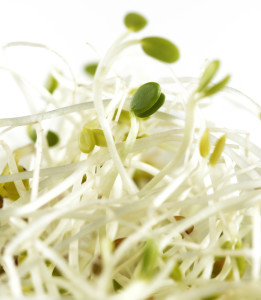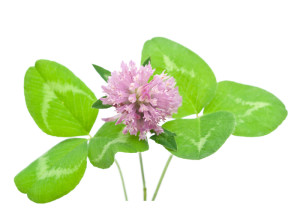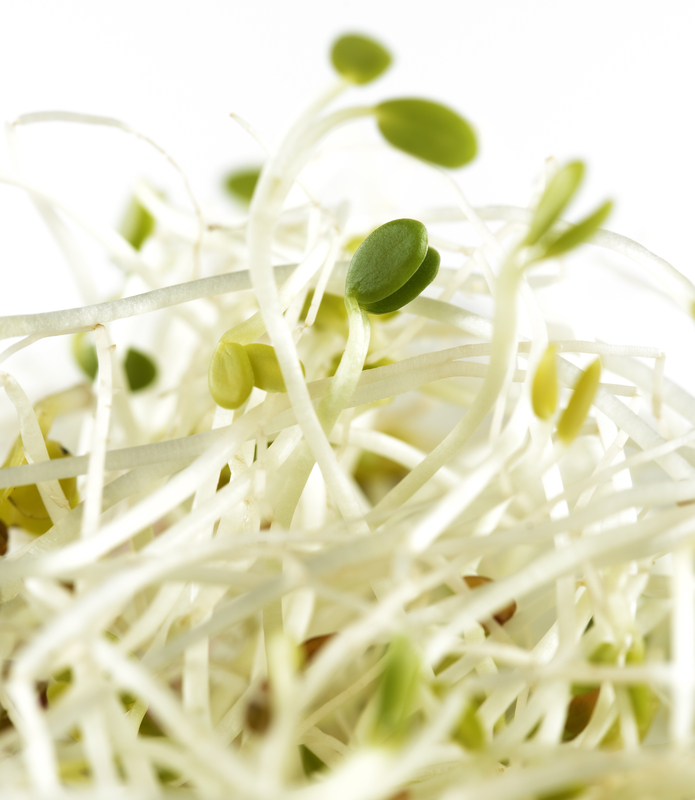Bean sprouts. Alfalfa sprouts. When is the last time you ate some? Sprouts are a great way to incorporate more raw foodinto your daily diet. But why should you?

1. Sprouts are Rich In Enzymes
An enzyme is a kind of specialized protein molecule, composed of a chain of many amino acids. They are found in all living things. Without them, chemical reactions responsible for the growth, maintenance, repair and decomposition of cellular matter would cease to occur, and death would result. In his early 20th-century book, Enzyme Nutrition, Dr. Edward Howell professes that although the human body manufactures its own enzymes for digestive, immune and detoxification purposes, the quantity of these enzymes is finite, suggesting that cooked processed foods could deplete our enzyme production systems sooner than a diet rich in raw foods. Could chronic enzyme deficiency pave the way to chronic inflammatory and degenerative conditions, such as arthritis, diabetes, infertility and cancer? Check out Pottenger’s Cats study and decide for yourself.
The sprouting of seeds, grains and legumes captures the plant at its most nutrient-dense stage; that is, before the seed becomes a plant. This active process is why they are so rich in enzymes. Seeds are powerful foods, containing the potential for much energy—after all, they contain what they need to create new life!
2. During the sprouting process, some vitamin levels increase by over 20 times! After all, enzymes cannot not be manufactured without sufficient quantities of dietary vitamins, minerals and amino acids.
3. In addition, sprouting may reduce nutrient-blocking phytates, which are found in the hulls and bran of certain grains. In this way, sprouting ‘unlocks’ the nutrients within a seed, allowing them a better opportunity to be absorbed through the digestive tract.
4. Sprouts are alkaline-forming to the body, meaning that they do not contribute to generation of dangerous acids once they are digested.
Some Benefits of Specific Sprouts
Broccoli sprouts contain high levels of sulfurophanes—sulfur-containing compounds that are known to assist the liver in its blood cleansing work.

Alfalfa sprouts contain good levels of vitamin K–a nutrients needed for proper blood clotting.
Red clover sprouts are an excellent source of phyto-estrogens, which support bone and heart health in women without the negative side effects from synthetic hormone replacement. (Tempfer CB et al. The American Journal of Medicine 2009 Oct; 122(10): 939-46)
Most beans, lentils and grains may be sprouted and used in no-cook recipes. You can even grow your own! The wonderful thing is that it’s easy, fast and no soil is required. Try sprouting today!
